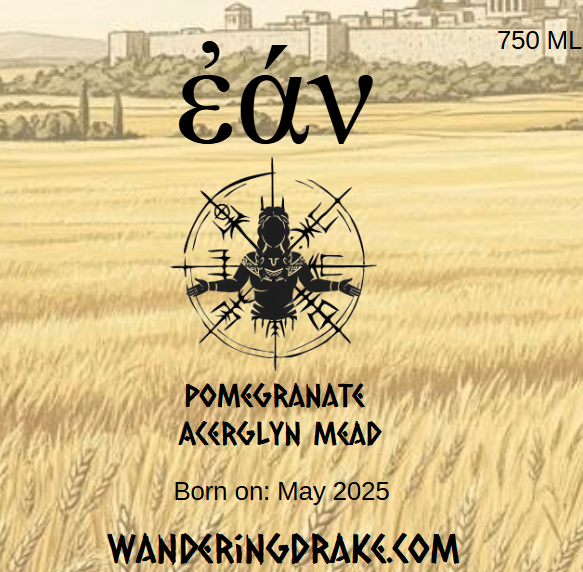Pineapple Mead: Pineapples were originally called "nanas," meaning "excellent fruit". Today, the pineapple remains a symbol of hospitality and is enjoyed worldwide, with its rich history reflecting its journey from the Americas to the global stage. Christopher Columbus encountered the fruit in Guadeloupe in 1493, bringing it to Europe where its rarity made it a symbol of luxury and wealth in the 17th and 18th centuries
EAV is Greek for “IF”. - King Phillip II was taking many of the Greek city states under his rule by force. He sent a letter to Sparta stating “He would destroy their farms, kill their people, and raze their city if he invaded Laconia” The Spartans responded with a single word “IF” (EAV). Pomegranates were highly prized by all the Greek city states, not only as food but as a symbol of fertility, abundance, marriage, and the eternal cycle of life and death.
Imagine if you will, a pint of liquid gold, shimmering with the sun's warmth. This is not your typical drink; it's a taste of ancient forests and wildflower meadows. Wild flower honey means that the flavor will vary each year based on what the bee’s have access too all summer. A traditional mead is the perfect balance between two worlds. It starts with a bold, rich honey flavor that greets the palate like a long-lost friend, offering notes of wild flowers, clover, and the subtle, earthy essence of the wild.



